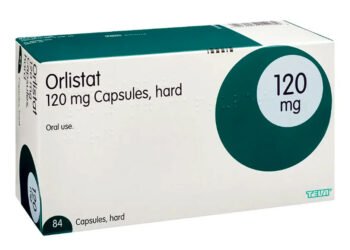Health management is a critical aspect of leading a balanced and fulfilling life. With the advancement of technology and the growing focus on wellness, a variety of tools are now available to help individuals take control of their health. From tracking your daily activities to managing chronic conditions, these tools offer personalized solutions that can significantly enhance your quality of life. In this guide, we will explore the different types of health management tools available, their benefits, and how to incorporate them into your daily routine.
Understanding Health Management Tools
What Are Health Management Tools?
Health management tools encompass a wide range of devices, applications, and products designed to help you monitor and improve your health. These tools can assist in various aspects of health management, including fitness tracking, dietary planning, mental health support, and chronic disease management. For example, a continence aid is a specialized tool that helps individuals manage incontinence, providing them with the confidence and comfort to go about their daily lives without worry. Such tools are tailored to address specific health needs, making them invaluable for maintaining overall well-being.
The Importance of Personalized Health Management
One of the key benefits of health management tools is their ability to offer personalized care. By collecting and analyzing data specific to your health, these tools can provide insights and recommendations that are tailored to your unique needs. Whether you’re looking to lose weight, manage stress, or monitor a health condition, there is a tool that can help you achieve your goals in a way that suits your lifestyle.
Fitness and Activity Trackers
Keeping Active with Wearable Devices
Wearable fitness trackers have revolutionized the way we approach physical activity. These devices, often worn on the wrist, monitor various aspects of your daily activity, such as steps taken, calories burned, and heart rate. Many fitness trackers also offer features like sleep tracking and workout logging, providing a comprehensive view of your physical health.
By setting daily goals and tracking your progress, fitness trackers can motivate you to stay active and improve your fitness levels. Whether you’re training for a marathon or just trying to increase your daily step count, a fitness tracker can be an excellent companion on your health journey.
Apps for Tracking Fitness Goals
In addition to wearable devices, there are numerous fitness apps available that can help you set and achieve your fitness goals. These apps often sync with your wearable devices to provide detailed reports on your progress. Some popular fitness apps include MyFitnessPal, Strava, and Fitbit’s own app. These platforms offer a range of features, from workout plans to nutrition tracking, making it easier than ever to stay on top of your health.
Dietary Management Tools
Meal Planning Apps
Eating a balanced diet is essential for maintaining good health, and meal planning apps can be a game-changer in this regard. These apps help you plan your meals, track your calorie intake, and ensure you’re meeting your nutritional needs. Apps like Mealime, Yummly, and MyPlate make it easy to create healthy meals tailored to your dietary preferences and goals.
Meal planning apps can also save you time and money by helping you create shopping lists and avoid food waste. By taking the guesswork out of meal preparation, these tools can help you stay on track with your dietary goals.
Nutrition Tracking Tools
Nutrition tracking tools are another valuable resource for managing your diet. These tools allow you to log your meals, track your nutrient intake, and monitor your progress toward specific dietary goals, such as weight loss or muscle gain. Many apps also offer barcode scanning features, making it easy to log packaged foods.
Tracking your nutrition can provide insights into your eating habits and help you make more informed food choices. Whether you’re looking to increase your protein intake, reduce your sugar consumption, or ensure you’re getting enough vitamins and minerals, nutrition tracking tools can help you stay on target.
Mental Health Support Tools
Meditation and Mindfulness Apps
Mental health is just as important as physical health, and there are plenty of tools available to support your mental well-being. Meditation and mindfulness apps, such as Headspace, Calm, and Insight Timer, offer guided meditation sessions, breathing exercises, and sleep aids designed to reduce stress and improve your mental clarity.
These apps can be used anytime, anywhere, making it easy to incorporate mindfulness into your daily routine. Regular use of these tools can help you manage stress, improve focus, and achieve a greater sense of calm and balance in your life.
Online Therapy Platforms
For those seeking more in-depth mental health support, online therapy platforms provide access to licensed therapists from the comfort of your home. Platforms like BetterHelp, Talkspace, and 7 Cups offer a range of services, including one-on-one therapy sessions, group therapy, and self-guided mental health programs.
Online therapy is a convenient and accessible option for anyone looking to improve their mental health. It allows you to connect with a therapist who can help you work through personal challenges, develop coping strategies, and achieve your mental health goals.
Chronic Disease Management Tools
Blood Glucose Monitors
For individuals managing chronic conditions like diabetes, blood glucose monitors are essential tools for daily health management. These devices allow you to measure your blood sugar levels, helping you stay within your target range and avoid complications. Modern glucose monitors often come with mobile apps that allow you to log your readings, track trends, and share data with your healthcare provider.
By keeping a close eye on your blood sugar levels, you can make informed decisions about your diet, medication, and lifestyle, ensuring better control of your diabetes.
Blood Pressure Monitors
Blood pressure monitors are another important tool for managing chronic conditions, particularly for individuals with hypertension. These devices allow you to measure your blood pressure at home, providing valuable data that can help you and your doctor make decisions about your treatment plan.
Many blood pressure monitors now come with digital displays and memory functions, allowing you to track your readings over time and identify patterns. Monitoring your blood pressure regularly can help prevent complications like heart disease and stroke.
Choosing the Right Health Management Tools
With so many health management tools available, it can be overwhelming to know where to start. The key is to choose tools that align with your health goals and fit seamlessly into your lifestyle. Whether you’re looking to improve your fitness, manage your diet, support your mental health, or monitor a chronic condition, there’s a tool out there that can help you take control of your health.
Remember, the best health management tools are those that empower you to make informed decisions about your well-being. By incorporating these tools into your daily routine, you can stay proactive about your health and enjoy a higher quality of life.












